Europe should unite around its values of tolerance and individual freedom to counter radicalism.
On January 7, gunmen attacked the offices of the French satirical magazine Charlie Hebdo, killing 12 people, including two police officers. The incident was the most devastating act of terrorism in France in half a century. Two days later, as French police joined a mass manhunt for the suspects at-large, two hostage situations brought the country to a standstill. In total, 17 people lost their lives at the hands of Islamist extremists.
Seeking “revenge” for the magazine’s depiction of the Prophet Muhammad, the actions of the French-born terrorists have inspired a wave of support for the fundamental values of free speech and expression not only in France, but across the world. The solidarity hashtag #JeSuisCharlie has become the most popular in Twitter’s history.
As details about the events and the perpetrators continue to emerge, questions about the failure of French intelligence are being posed. Cracks in the social polity with regard to the causes and effects, as well as measures needed to counter and prevent further tragedies, are also starting to show.
With ongoing conflict in the Middle East, the world is being brought face to face with jihadist groups such as the Islamic State and al-Qaeda, while it remains to be seen what lessons will be drawn from the Paris tragedy.
In this transcript of a Skype interview on January 9, Fair Observer talks to Professor Matthew Feldman, an expert on extremism and the far-right, about the significance of the attacks and the way forward toward a comprehensive strategy to counter radicalism.
Anna Pivovarchuk: This week’s attacks on the Charlie Hebdo offices and the kosher supermarket in Paris have reverberated not only through France, but the world. Why France? Is it just a random act of brutality or is there more to the situation?
Matthew Feldman: It is still early days and our hearts go out above all to the victims. In the coming weeks and months there will be time for analysis of exactly these issues. At the risk of being overturned by new information, it seems that the suspects were born and raised in France and may have been radicalized in France, so the target was the land of their birth. And that is something that is very concerning: home-grown radicalism and, of course, terrorism. But that doesn’t mean that the attack on Charlie Hebdo was entirely random. Clearly this was a targeted attack against what was perceived to be an insult to Islam by individuals who are clearly jihadist extremists willing to kill to advance their message.
Pivovarchuk: As you said, the attackers were French-born. For example, the Kouachi brothers – Said and Cherif – were known to French authorities in connection with extremist activities. Many people may ask whether there was a failure by the security and justice systems to prevent what has happened. What is your opinion on this?
Feldman: I have to again stress that for those of us who do not have access to confidential information the situation is developing, and I have no doubt that there will be some difficult questions for the French security services in the coming days and weeks. The French security services do have a very strong reputation for intelligence and counterterrorism operations, but it does seem that if they were on the US no-fly list or if some of the suspects had been convicted of terrorist related offences, then one would expect that there would be a level of monitoring for individuals like this.
One of the things that seem very troubling for some analysts is the caliber of weaponry that was used. We know from other Islamist attacks that the level of savagery, the willingness to take innocent lives has been a hallmark going back to 9/11. One of the things that seems part of a wider jihadi network was the way in which the suspects were able to get Kalashnikovs and rocket launchers into Paris. Many analysts have suggested the attacks have the hallmarks of overseas jihad, in places like Syria. While it is too early to make definitive pronouncements on the question of how individuals were able to get this kind of weaponry into a major metropolitan city and undertake such a horrific attack really does raise some troubling questions in terms of counterterrorism.
Pivovarchuk: How difficult is it to obtain these types of weapons in France? For example, in America, access to military-grade weapons is relatively easy.
Feldman: Yes. And I have no doubt that in America and in other places right across the world there is a thriving black market in weapons. However, even as far as that black market goes, I understand that obtaining things like rocket launchers and prepared explosive devices is very difficult indeed. So, what remains to be seen is whether these were sourced domestically in France or whether they were smuggled in from overseas or, again as I suggested, that they may be part of a wider network of Islamic State or al-Qaeda in Yemen and other jihadi groups operating in the Middle East.
Pivovarchuk: There is bound to be a lot of talk about whether European border controls should be strengthened and how to prevent the fluid movement of people through Europe. Are we looking at a potential situation where civil liberties may be jeopardized by measures such as the Patriot Act that was adopted in the United States after 9/11?
Feldman: Those are two separate questions, so let me take the first one because I think it is very important to say that citizens of goodwill are able to separate the actions of a few extremists from the wider religion as practiced by tens of millions of Muslims in Europe. And I think it is important for all citizens of goodwill to be able to stand up and differentiate the two. However, we have seen groups on the further reaches of the right as reactionaries, or the far-right – as ultraconservative UKIP blaming what happened in France on multiculturalism, or Marine Le Pen from France’s Front National calling for tighter immigration controls. Arguably in the wake of such a horrific crisis this is political points scoring, but it also suggests potentially at least that direction of travel of groups on the further reaches of the right.
So those are concerns and it seems these things will be developing precisely along the lines you suggest: a closing of borders, withdrawing of Europe into itself. And that’s something that must be thought about.
The second part of your question I believe it is equally important, which is the implication for civil liberties. I think that as we saw in the wake of 9/11 – the most horrific terrorist attack in history –there were many infringements on civil liberties. And I believe it is important for Europeans from Britain and the “West,” and all the way to Romania in the east, to remember what unites us and what it is that makes us strong, and that is certain fundamental freedoms enjoyed by citizens and residents of the European Union. So I do not think fundamentally that any act of terrorism is enough to challenge or overthrow the way of life in Europe or, quote on quote, “the West.” Only politicians or the securitization of politics can do that.
The terrorists cannot win unless we help them by moving against these civil liberties. I think it is extremely important that we remember the humanistic and human rights values that postwar Europe has been founded on, and as we saw very hearteningly after the horrific terrorist attack in Norway in 2011 that it’s possible to double down on values that came under attack and to say we are proud of those values we will not hide them and we will not compromise. That is not the same as saying we should turn a blind eye to terrorism or that the perpetrators should not be treated or prosecuted with the full extent of the law.
However, what it does mean is that there are certain fundamental freedoms and fundamental assumptions: freedom of expression is one and so is freedom of religion. And I think it is absolutely imperative that we reach out to both Muslim citizens in Europe, but also to some of the people on the further reaches of the far-right. We have already seen troubling incidents of attacks on individual Muslims in France as a type of reprisal or what scholars like myself have called “cumulative extremism,” where one form of extremism – in this case jihadi extremism – is connected to another extremism – in this case the far-right or even the fascist right – which seeks to take advantage of these and launch attacks against individuals who clearly had nothing to do with the events in question. I think the threat of these connected extremisms remains serious and remains something that I think helps to underscore the values that the vast majority of citizens across Europe share: the rejection of terrorism and political violence from whatever quarter it comes from, and the willingness to stand up for humanistic values upon which so much of postwar Europe has been based.
Pivovarchuk: Indeed, many see these events playing in the hands of the European far-right, which has been gaining political momentum across the continent. Just the other day, Nigel Farage – leader of the UK Independence Party – suggested these attacks stem from a fifth column living among us. Does this mean there may be more attacks against Muslims? How does one dismantle this rhetoric of “us against them”?
Feldman: The first thing that needs to be said is that individuals like Nigel Farage flourish when there are crises or in the wake of terrorist attacks because it allows them to get their prejudiced message out about the rejection of multiculturalism or of multi-faith groups in Britain and Europe. I think that message must be absolutely rejected. It seems to me absolutely crazy to attempt a solution to these kinds of problems by abandoning multiculturalism. As we saw in Norway in 2011, where there was very little blaming of Norwegian Christians for the horrific actions of Anders Behring Breivik, we can also say in the same way that we are not going to blame Muslims at large in Europe. But at the same time it will embolden us to strike back at terrorism from whichever source it comes from.
Terrorism is a tactic that can be used by jihadi Islamists in the same way it can be used by crusading Christians like Breivik. The difference is that because Christianity has been so long identified with Europe, it is easier to say that a person like Breivik shares none of the values of practicing Christians across the continent. I believe that also applies to practicing Muslims in terms of Islam across Europe. I think it is imperative that citizens of goodwill are able to make that distinction between terrorists who should be prosecuted to the fullest extent of the law, and individuals who have nothing to do with these acts of senseless violence who should also be protected to the full extent of the law. Innocent citizens’ rights and freedoms should be defended, because once you take them away from one group, you may as well have them taken away from whatever group you may identify with.
Pivovarchuk: These attacks may have nothing to do with Islam, but there have been retributions against mosques in the wake of the incident. There are over 1.5 billion Muslims in the world. Do you know what proportion extreme ideologies make up out of this figure?
Feldman: I have heard numbers of 10 to 15%, which is certainly most concerning if accurate. But I have to disagree with you. To say it has nothing to do with Islam is mistaken. What has not happened is, for example, shouting slogans for Buddhism or veganism, with which this attack has nothing to do. That is not the same thing as saying these individuals have legitimate, or widely accepted interpretations of Islam.
However, a perverted doctrine of Islam has clearly motivated these individuals, and I think it is incumbent upon not only Muslims — who are too often confronted with, “What are you doing to improve, to stop this?” — to stand up and be counted. What we find is actually that individuals right across Europe are doing all they can; it is not incumbent on the general Muslim person in Europe any more than it was on Christians in Norway. However, I do think we have to be honest and say: it is a perverse, disgusting misreading of Islam. But the attackers were not invoking other religious doctrines, they were invoking Islam. And I think that needs to be very seriously looked at so we can separate Islam as a social and peaceful doctrine that appears in 21st century Europe, and the perversion of Islam perpetrated by these individuals. If they had their way, they would leave a trail of blood not only across Europe but also the Middle East and around the world, which is why they as terrorists need to combated with every fiber of our being while at the same time protecting innocents Muslims with the same passion and same intensity.
Pivovarchuk: You mentioned the Muslim community and how it has been caught up in all of this, but what can they do to counteract do the influence of extremists?
Feldman: I think there are two things: One is about the Moslem community and the other is about the wider European community. First, we need to encourage Muslims – our friends, our colleagues across Europe to be able to denounce the kinds of insidious terrorism and extremism that exists in small pockets of Europe. That is something we need to say. We have had plenty of evidence of individuals in the Muslim faith of either turning in suspected terrorists, people who might be involved in plots, of showing that there is no incompatibility between the values of Europe and the EU and the values of Islam. I think that needs to be continued and supported.
But the other thing that is incumbent upon you and me and all citizens of goodwill in Europe is to amplify their voices. They are raising their voices but they are not always being heard.
In Britain we are familiar with the stand taken by Muslims in the wake of the horrific murder of Lee Rigby. But I think what we need to do all of us Muslims and non- Muslims alike is to challenge this ridiculous view that Muslims somehow don’t reject terrorism, that they aren’t somehow lending their voices to the values of democracy and the values of the EU. This is simply nonsense and it is incumbent upon all of us to show and listen and to amplify the voices of those individuals who are standing for the exact and precise freedoms as we are.
Pivovarchuk: You mentioned the barbaric murder of Lee Rigby in Woolwich in 2013: Like its perpetrators, many of the recent attacks have been committed converts to Islam, by those who weren’t even born into the faith. How is that is relevant in coming up with solutions to radicalization?
Feldman: It’s a good question and I don’t claim specialist insight on radicalization within jihadist Islamism, although it has been observed that converts to Islam may be at greater risk of radicalization. Certain radicalization occurs online, but there are also physical spaces where this happens. And I think those are the places that all citizens need to counteract and address as a matter of urgency. So I am not convinced that radicalization is a straightforward or accepted process in the Muslim community, or indeed terrorists of any community – the far-right, eco-terrorism – there are many different faces of terrorism. We are only starting to get our heads around what drives radicalization and extremism and I believe it is incumbent upon citizens, analysts and security forces to understand more about the processes of radicalization as and when we can.
Pivovarchuk: The Paris attackers had criminal histories, starting from an early age, the Kouachi brothers were orphans. They seem to fit the “type” drawn to extremism – what many call the “disaffected youth.” Why are so many young European Muslims attracted to extremism?
Feldman: It depends on whom you ask. Some individuals from the more reactionary side believe there is a type or a profile among second or third generation migrants to Europe. I am not so convinced, especially when we look at the broader picture of homegrown terrorism which not only includes jihadi Islamists, but also far-right extremists and a wide variety of terrorists. That suggests there can be a number of motives, sometimes conflicting and overlapping.
One that is often mentioned, the so-called “lone wolf” terrorist, concerns the questions of mental illness. Again, those are things that academics are discussing and analysts are looking at, and I am not yet convinced that there is any systematic, quantitative evidence on these matters. It does seem as though there’s a profile that terrorists tend to be male, they overwhelmingly tend to be between the ages of 15 and 50. But beyond that I am hesitant about saying that there is a profile of terrorists –certainly not in skin color and certainly not in religious background. Nevertheless, there may be a question of how individuals fit in to the wider community, either as migrants, or second-generation immigrants or as people who feel isolated within their community through poverty or other social tropes. I believe that the attacks in France, but also attacks over the last 15 years, underscore the need to have sophisticated pan-ideological view of terrorism and some of its radicalizers.
I will give you one example: one scholar found that the greatest shared motivation for terrorists was the sense of humiliation and social failure. That might very well be something, but we must know more, we need to know more about the precedents or mental illness, we need to know more perhaps about the way in which victims have suffered racism or suffered from violent attacks, and might, therefore, be radicalized. So I think it is a very difficult topic. I don’t think we can come up with one single explanation for why people are radicalized, but I think more than anything that it underscores the need for European governments, security services and engaged intellectuals to put their heads together to understand what some of these drivers can be. Not in the interests of making a profile that can criminalize swaths of Europeans, but to understand how we can protect individuals in Europe and how we can understand the threat posed by various types of terrorism that clearly pose not an existential but an important and troubling danger in the heart of contemporary Europe today.
Pivovarchuk: There has been a wave of terrorist attacks across the world in the past year: Canada, Australia, Belgium, now France. Although much remains unclear about the Paris tragedy still, many of these have been “lone wolf” attacks you mention – much along the lines of the IS calling for followers to go out and kill infidels. Such attacks would be more difficult to prevent, due to the way they are planned. What can be done to counter the IS message? What are the mistakes to avoid?
Feldman: The 21st century may be a century of “lone wolf” terrorism like the end of the 19th century. It must be stressed that “lone wolf” terrorism is a tactic. In the 19th-century it was principally used by anarchists, well into the beginning of the 20th century. And then for a good half century we didn’t see hardly any similar acts until the end of the 20th century in the United States, when neo-Nazi and other far-right ideologues started touting “lone wolf” terrorism. The doctrine of “leaderless resistance” was really founded by an American neo-Nazi in the late 1980s and 1990s, and it was based on the fact that it was much easier to penetrate a hierarchically structured terrorist organization, which has a leader at the top, operatives in the middle and people as foot soldiers at the bottom. His view was of individuals sharing the same kinds of values could undertake self-directed acts of terrorism and extremism and, therefore, pose less likelihood of being captured – a system more difficult for security services to break into.
Now the move to the Internet has changed the ways in which individuals who are minded to undertake acts of “lone wolf” terrorism can be interdicted through their activities online. However, we see individuals like Breivik, who were both radicalized online and using the Internet as a kind of “do it yourself” terrorist kit, that there are very troubling exceptions to this. Breivik’s manifesto is proof of the way in which an individual can learn the trade of terrorism online and can go through the so-called “terrorist cycle” for all the stages short of an attack. So I think that is concerning and one of the things we have seen only in the last six or seven years is that individual extremists and radicalizers of jihadi Islamism have sought to appropriate this tactic from neo-Nazis and the far-right for what they call individual jihad. This is something we saw on the pages of the absolutely disgusting and obnoxious magazine put out by al-Qaeda and Anwar al-Awlaki. Only over the last decade has this become an issue that ideologues and jihadi Islamists have advocated for so-called lone wolf packs or leaderless jihad.
What we find is that this is something which is on the rise and is something that is not limited to a single ideology. So the best answer I can give you at this troubling time is that the rise of “lone wolf” terrorism must be understood better and must be studied – the psychology of the lone wolf terrorists, the terrorist cycle and operational capacity, but also how these individual can be neutralized, how they can be found through their online activity or through their communities of support. So I am very concerned but I believe we need to know more.
Pivovarchuk: It was reported that the head of preachers in Islamic State, Sheikh Abu Saad Ansari, has said the following today: “We started our operations with France today, and tomorrow (in the near future) it will be in Britain and America and other countries. Our response to the coalition will be decisive.” How much is Europe, and the US, at risk?
Feldman: Yes there is a risk. But there was a risk before these appalling acts in France. Pathetic propaganda from groups will always try to make capital out of it and they will always try to make threats. I think it must be underscored that Europe and the democratic systems in the “West” are not at an existential threat of terrorism.
The only existential threat that can be posed to Europe are the actions and dangers that we pose to ourselves by attacking and curtailing civil liberties. That is not to say there is not a threat of terrorism, that is not to say that citizens of goodwill should not be vigilant or isolate terrorists from whichever doctrine or background they come from. I believe it is in the hands of Europe and citizens of goodwill to isolate and is reject these doctrines.
Yes, there will always be a threat of terrorism just as there was in the 19th century, but I also believe we need to keep things in perspective, have a matter of proportion in our minds. The barbarians are not at the gates and certainly will not come into the gates unless we let them.
In my view this means to double down on the values that have so aided Europe since 1945, and start working together. I believe that in the same way different nations began to work together in the second half of the 20th century, that different faith groups and people of different backgrounds can work together and say: we might disagree on many things but we believe in the dignity of the individual, we believe in freedom of speech and freedom of religion, and we believe that those who reject these values in favor of racism, hatred and violence can be countered by our words, that our ideas are better, that our capacities for interdicting these individuals and still remain the best in the world.
So let us not be fearful. Let us stand up even more unabashedly to pronounce our values and to say that the terrorists cannot win because we will not let them and because they represent a small isolated minority that will be defeated by collective action across Europe from citizens of goodwill and the defenders of the values of postwar Europe.
Fair Observer is a nonprofit organization dedicated to informing and educating global citizens about the critical issues of our time. Please donate to keep us going.
The views expressed in this article are the author’s own and do not necessarily reflect Fair Observer’s editorial policy.
Photo Credit: Cloud Mine Amsterdam / Conejota / ChameleonsEye / Frederick LeGrand / Hans Vatne Hansen / Shutterstock.com
Support Fair Observer
We rely on your support for our independence, diversity and quality.
For more than 10 years, Fair Observer has been free, fair and independent. No billionaire owns us, no advertisers control us. We are a reader-supported nonprofit. Unlike many other publications, we keep our content free for readers regardless of where they live or whether they can afford to pay. We have no paywalls and no ads.
In the post-truth era of fake news, echo chambers and filter bubbles, we publish a plurality of perspectives from around the world. Anyone can publish with us, but everyone goes through a rigorous editorial process. So, you get fact-checked, well-reasoned content instead of noise.
We publish 2,500+ voices from 90+ countries. We also conduct education and training programs
on subjects ranging from digital media and journalism to writing and critical thinking. This
doesn’t come cheap. Servers, editors, trainers and web developers cost
money.
Please consider supporting us on a regular basis as a recurring donor or a
sustaining member.
Will you support FO’s journalism?
We rely on your support for our independence, diversity and quality.


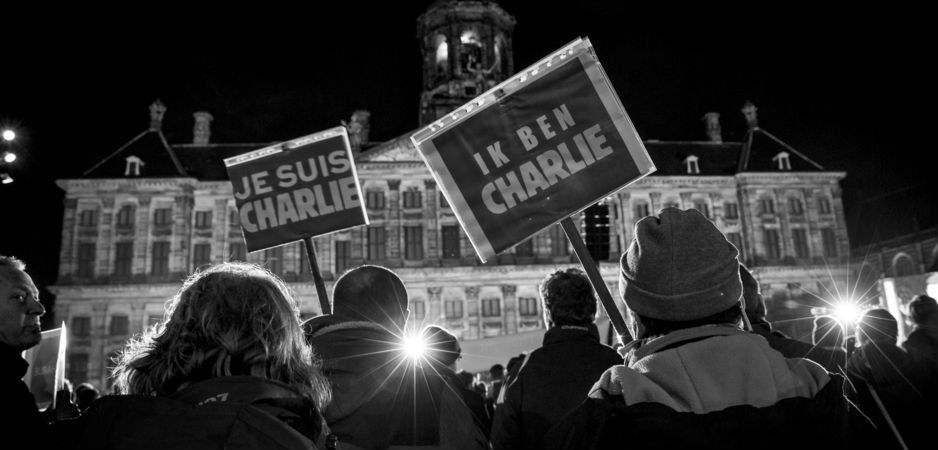
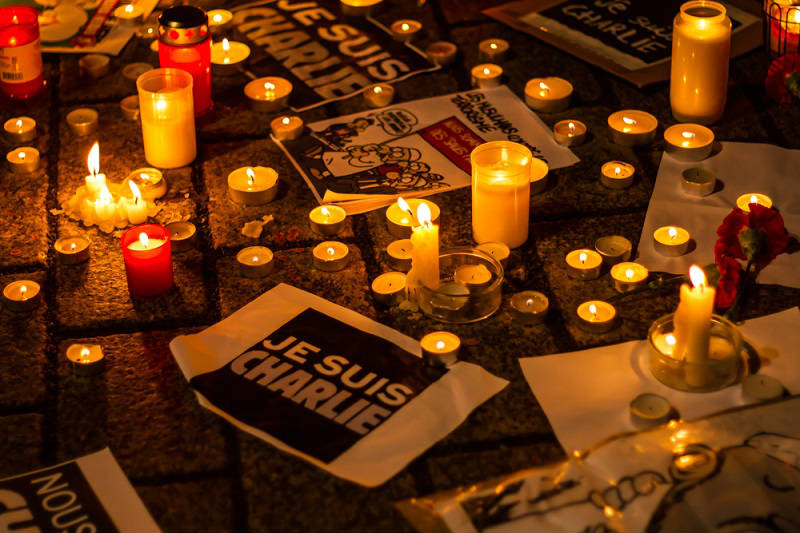
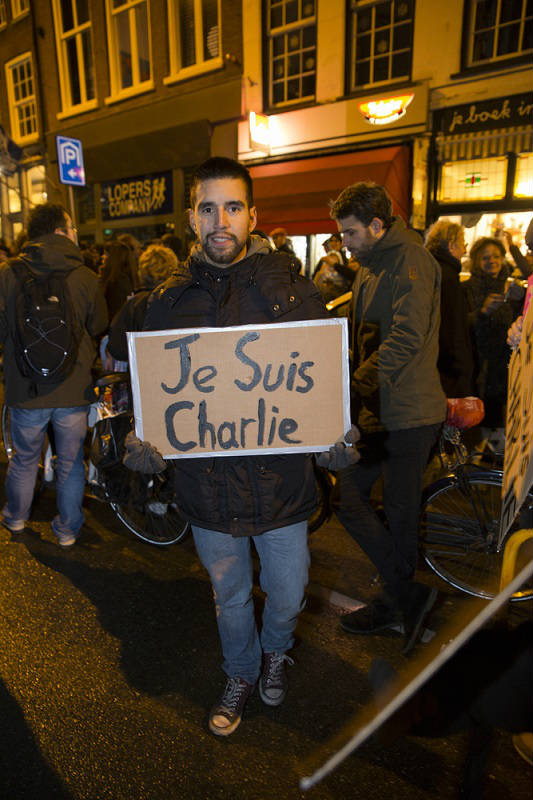
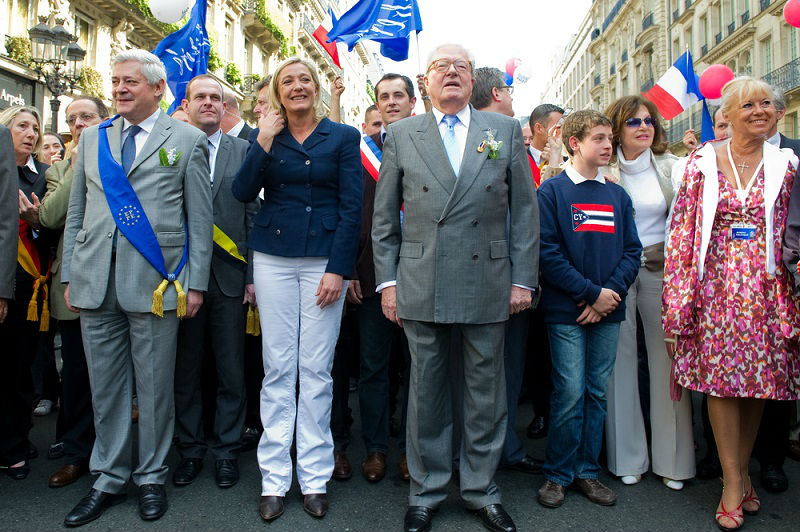

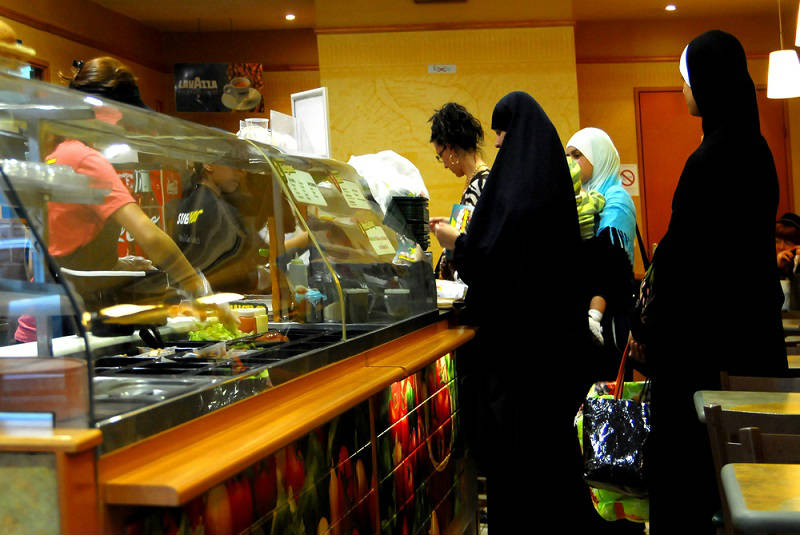

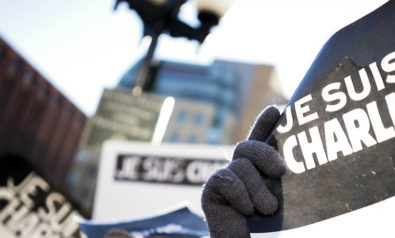


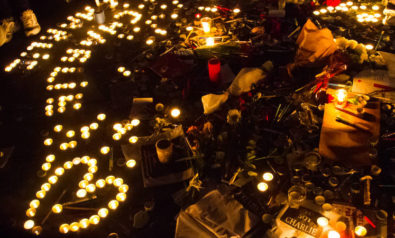
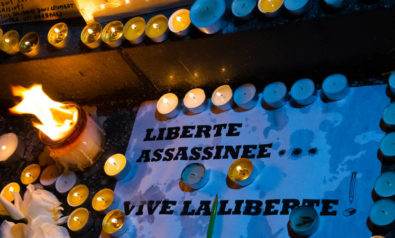
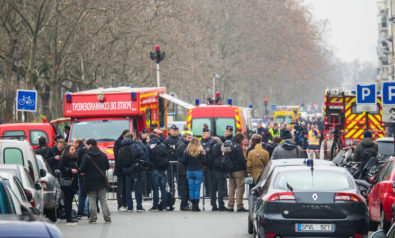
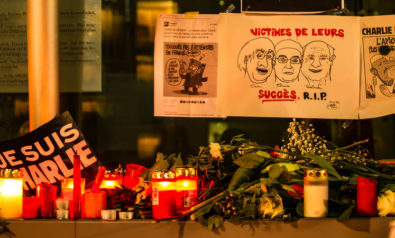
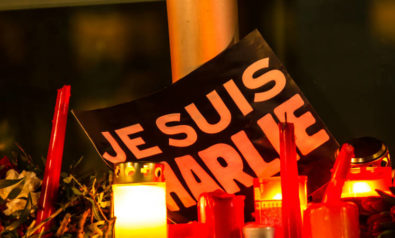

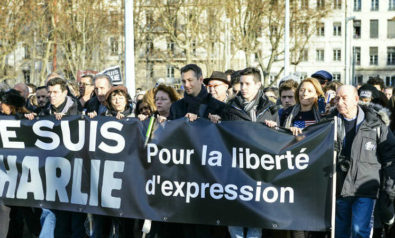

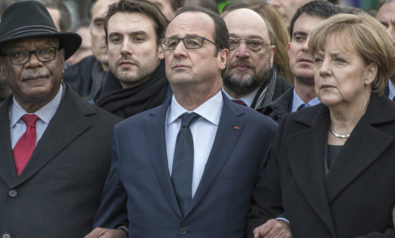
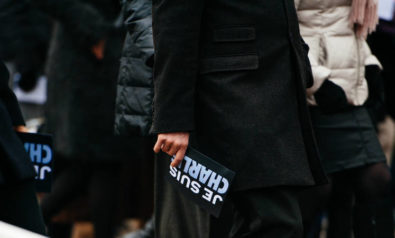

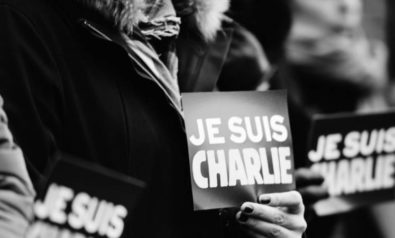

Comment